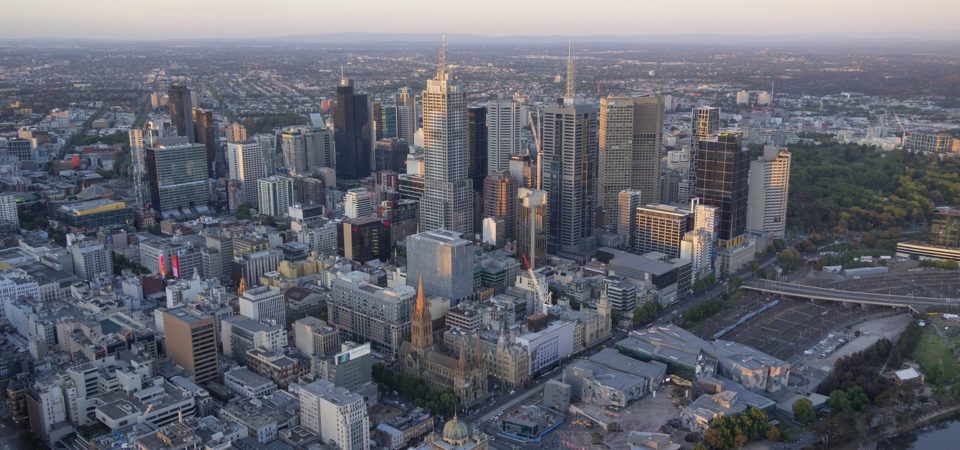This article appeared first at The Overpopulation Project on October 13, 2020.
The current economic system in Australia is a Ponzi scheme based on maintaining positive GDP through migration. Populations of native species are plummeting and people are faced with increased job insecurity and housing costs, all of which are side effects of the Australian government’s ongoing drive for an ever increasing population.
In the 35 years prior to 2005, Australia’s net overseas migration averaged around 70,000 per annum. But from 2005 this number was trebled, and ever since then Australia’s population has been increasing at the rate of an extra million people every three years.
As a result, Australia has been a part of the on-average 68% fall in global wildlife populations between 1970 and 2016. Some Australian species’ numbers have plummeted by up to 97%, primarily due to habitat loss.
The environmental havoc is justified as needed for the economy, but the evidence does not support this claim. In the 1950s and 1960s Australia had strong industry protection policies and a strong manufacturing industry, and therefore both migrant and non-migrant workers had good wages. Generally families could live off one income.
But by 2005, the industry protection was gone. The economic impacts of the trebling of migration rates for the last 15 years have been negative for ordinary Australians, many of whom are post-war migrants or their descendants.
Job insecurity and casual employment have jumped, housing costs are some of the highest in the world, travel times and traffic congestion in the major cities have risen dramatically, and wage growth has stalled.
Notwithstanding these negative outcomes, Australian governments are now wedded to what amounts to a migration driven Population Ponzi scheme. The migration keeps GDP in positive territory, so governments and bureaucrats can boast that Australia is growing and not in recession, despite living standards flatlining and the environment tanking. And our universities and vocational education institutions have dropped the ball on education and turned into corporate parasites, selling permanent residence to international students and paying million dollar-plus salaries to their administrators.
Australians have been conned by nonsense from political, business and media elites about the size and nature of our migration programs. We have fallen for the bogus claim that questioning any migration program, no matter it’s size, is racist. For the record, one quarter of Australians were born overseas and one half had one or both parents born overseas. We are more multiracial than the United States or the United Kingdom—more multiracial and welcoming than pretty much anywhere in the world.
We have believed convenient lies like “we need migrants to pay our pensions” or “we don’t have these skills in Australia”, or “our economy depends on high migration levels”. To the extent there’s any truth in the latter, it is because we are now running a Ponzi scheme. The longer we let it grow, the bigger the collapse at the end will be.
I believe change will come, but it won’t come till people understand that Australia’s economic problems are a consequence of the Population Ponzi scheme; that is, that they are caused by poor government policy. Flatlining incomes and job insecurity are government policy. Unaffordable housing and massive personal debt are government policy. The demise of manufacturing and a narrow economy based on construction and services is government policy. A dense population plagued by traffic congestion and declining vegetation cover, and vulnerable to pandemics, is government policy.

There is, of course, an alternative. For many years, Australia enjoyed high levels of social cohesion and self-sufficiency. We made more of our own things, and provided more universal access to health, education and the age pension. Countries like Germany, Japan, and the Scandinavian countries show that being high skill and high wage and being in good economic shape is more likely when you don’t run a Population Ponzi scheme than when you do.
It is said that when the tide goes out you can see who’s been swimming naked. The coronavirus pandemic has exposed the nakedness of the Australian economy. But like drug addicts, knowing the drug is bad, but taking it anyway, Australia’s high migration addicts are calling for the program to be resumed as soon as possible. They should be ignored.
Kelvin Thomson served as the Labor Party Member for Wills in Australia’s Federal Parliament for over 20 years, from 1996 until the 2016 Election. Kelvin is now Chief of Staff for the Sustainable Australia Party’s Victorian Upper House MP Clifford Hayes, and a national media spokesman for the Sustainable Australia Party.
The MAHB Blog is a venture of the Millennium Alliance for Humanity and the Biosphere. Questions should be directed to joan@mahbonline.org
The views and opinions expressed through the MAHB Website are those of the contributing authors and do not necessarily reflect an official position of the MAHB. The MAHB aims to share a range of perspectives and welcomes the discussions that they prompt.
